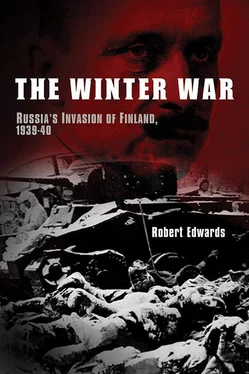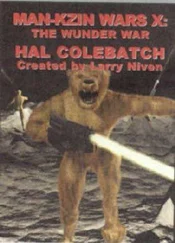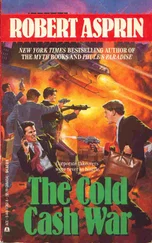Politically, Ryti was a Liberal, and far to the right of most Social Democrats. This particularly showed when he insisted that workers should cut their coats according to their cloth; as a result, wages during the depression plunged more in Finland than anywhere else in Europe, even if the absolute level of unemployment remained the lowest. [9] In Finland the depression started rather early with the collapse in construction materials prices, particularly lumber, in 1928, a signal which wiser heads had chosen to ignore.
The three long years of belt-tightening that resulted caused some measure of unrest at both ends of the political spectrum, although massive economic hardship was damped by the proactive role played by the co-operative banking system, which, however much it may have creaked, never broke. This double act of Ryti and Tanner, the one a conservative Liberal, the other an intellectual Marxist (although Tanner insisted, with a rather splendid cussedness, that he was a Menshevik, on those rare occasions when he actually spoke to a Russian) had few parallels, perhaps not since 1903, when Rolls met Royce; the partnership assured that a reasonable level of prosperity in Finland was both broadly constant and, more importantly, repeatable. Tanner’s political task, as one commentator put it, was to treat the Social Democrat Party like a radish; to peel off the red, revealing the white beneath. [10] See H. B. Elliston, Finland Fights, p. 112.
Not an easy task given the grim legacy of Finland’s civil war, but the Social Democrat Party had suffered badly from the Trojan horse wheeled up to its door by Lenin; Tanner was the man who would hamstring it.
So, to the fellow-travelling left, Tanner was anathema. Otto Kuusinen (of whom more later) declared him to be ‘the devil in human form’, a phrase which makes up in vitriol some of what it obviously lacks in originality, but the neat turn of phrase was never Kuusinen’s strongest suit; he seemed ever to think in threadbare clichés. And yet, Tanner’s far leftward political credentials had once been impeccable. When an American reporter asked him if the whispered rumour—that in his days as a putative revolutionary he had once helped a starving Stalin with money—was true, he replied crisply: It wasn’t Stalin, it was Lenin. And it wasn’t me, it was my wife. [11] Ibid., p. 115.
For the revolutionary left, however, his crime had been to reject the failed efforts of 1918; elected to the first unicameral Finnish Diet in 1907 as a 28-year-old firebrand, he had spent twenty years moving remorselessly to the centre-right.
As for Mannerheim himself, he clearly thought himself above party politics; he had given a cursory inspection to most of the groupings in Finnish politics, but had allied himself with none of them; indeed, when the right-wing Lapua movement attempted to embrace him, he stepped backward sharply. By breeding Mannerheim was an aristocrat, by cultural descent he was a Swedo-Finn and by political outlook he was unfashionably paternalist. That he was no particular friend of the working man for his own sake (unless uniformed) was fairly well known, and, while he may well have found certain elements of the dirigisme that had rapidly developed in Finland’s political life useful, he was also on record as saying not only that ‘socialism could not defend democracy’, but also democracy itself was perhaps sometimes a questionable objective. All of which made him, too, a hate figure for the far left; his natural political constituency, wherever it lay, was certainly not with the Neanderthal right (he considered Nazis, above all other things, to be irredeemably vulgar) but neither was it with the resolutely urban bien pensants who, rather like the earthier Tanner, viewed him with some suspicion.
For it was axiomatic to a certain type of twentieth-century Social Democrat that a badly-equipped and therefore ineffective army was somehow less immoral than one that did its job well. It was further held that due to this deliberate oversight, an inevitably slavish dependence upon multilateral institutions would somehow take up the resultant political slack. The heavy cost of this point of view is seldom borne, either directly or immediately, by its proponents; one thinks like a sovereign nation-state, or one does not. When the wheels fall off the wagon of policy, the armed services often pay the price.
In Finland’s case, the tensions between Mannerheim and his circle on the one hand and the dogged determination of a series of governments (to pay their debts and balance their books) on the other, were particularly marked. Unhappily, despite the fact that Finland had been turned inward upon itself since full independence (and to a purpose that still sets standards to which most cannot aspire today) the country had done so with a breathtaking disregard for the brutally Hobbesian world that was rapidly evolving on its eastern and southern borders, for by trade, debt repayment and all other commercial considerations, Finland had been looking to America and Western Europe, particularly Britain. Politically, the Finnish were constantly attempting to align themselves with Scandinavian neutrality, particularly with regard to Sweden; the central plank of the two countries’ common ground being the question of the Åland Islands.
This sprawling archipelago had been demilitarized as part of the 1921 settlement, and with understandable reason. [12] A separate convention from the Treaty of Tartu, although obviously associated with it. Moscow (indeed, Stalin) had signed the Treaty of Tartu—having granted Finnish independence and then lost the attempt to scupper it, they had no choice—but the Ålands were another matter and the Soviet Union did not sign the 1921 convention, which was sponsored by the League of Nations.
If properly armed and garrisoned, the Ålands would control not only access to the Gulf of Bothnia, but also to the western approaches of the Gulf of Finland, even the upper reaches of the Baltic Sea itself, which is why the islands had always been a cornerstone of Tsarist geopolitical strategy. Like Finland, these islands represented lost territory to the USSR; Finland had rather grabbed possession as part of its leap for independence, and the League of Nations, as ever storing up trouble for later, had acquiesced meekly to Finland’s demands. Ethnically and emotionally the Åland islanders were, however, Swedish and it was under pressure (and supervision) from Stockholm that Tsar Nicholas’s magnificent 1914 fortifications were meticulously demolished. Moscow had denounced the 1921 convention as an ‘Imperialist intrusion into the Baltic area’ [13] Jakobson, The Diplomacy of the Winter War, p. 35.
and had been grumpy about it ever since, powerless to act after the civil war, and really lacking a reason, until Germany started stirring.
This matter had thus become important by 1938. It had been forgotten by no one, least of all the Swedes and the Russians, that the jumping-off point for the German Expeditionary Force to Finland of 1918 had indeed been the Ålands (as a territorial gesture as much as anything else). To Finland, however, this contentious piece of real estate also served another vital purpose as, in the light of the obvious deterioration of European tranquility, public consultations were undertaken between Sweden and Finland with a purpose of remilitarizing the Ålands, about which the Soviet Union could do little short of declaring war, as Germany, France and Britain had also signed the convention which made the islands Finnish property. The Finnish objective was to establish a military-political joint venture that might serve to bind Swedo-Finnish interests together; if Stockholm undertook to assist Finland in fortifying its own territory, then an important and useful precedent might be set. For despite the admiration that the Finnish project had generated everywhere outside Russia, Finland was functionally isolated: Cinderella’s dance card would remain resolutely unfilled while she was handcuffed to her ill-tempered and distinctly ugly ex-sister. Politically, as a previous possession of Russia, it seemed likely to the whole of northern Europe that one day Russia would want Finland back, willing or not; and both the Ålands and Karelia were well known as unfinished business.
Читать дальше











